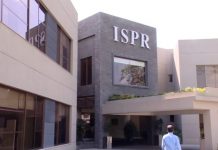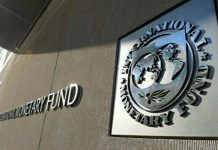LANDI KOTAL: Representatives of the Pakhtun Tahaffuz Movement (PTM) and members of a tribal and political jirga resolved to continue the process of dialogue.
This was the outcome of the latest round of talks between the PTM and the jirga at the Jamrud residence of Haji Shahji Gul, the MNA from Khyber tribal region. The session’s date and venue were decided between the two sides during their first round of talks on April 18 in Peshawar.
The PTM was represented by its leaders Manzoor Pashteen, Mohsin Dawar and Bilal Mehsud while the jirga comprised all parliamentarians from tribal areas, two tribal elders from every tribal agency (most of them pro-government), some elders from the frontier regions and provincial minister Shah Farman and PML-N MNA Dr Ebad, representing the Khyber Pakhtunkhwa and federal governments, respectively.
The jirga was constituted at the last week’s meeting of the Apex Committee presided over by KP Governor Iqbal Zafar Jhagra and attended by Chief Minister Pervez Khattak, Corps Commander of Peshawar Lt Gen Nazir Ahmad Butt and civil and military officials.
The jirga operates under the supervision of Governor Jhagra and has the support of the military leadership to engage with the PTM and help resolve the issues raised by the organisation.
The talks continued for over two hours during which almost all demands of the PTM were discussed.
Later talking to reporters at the conclusion of the talks, Shahji Gul said that the jirga members found all demands of the PTM legitimate and constitutional.
 “We thank the PTM team for their readiness to hold talks with the tribal jirga in accordance with the Constitution and supreme law of the land,” Shahji Gul said, adding that the three-member PTM team had sought some time for consultation with their comrades to decide about the date and venue of next round of the talks.
“We thank the PTM team for their readiness to hold talks with the tribal jirga in accordance with the Constitution and supreme law of the land,” Shahji Gul said, adding that the three-member PTM team had sought some time for consultation with their comrades to decide about the date and venue of next round of the talks.
In the next stage of the consultation, he said, the jirga would meet representatives of state institutions concerned and convey to them the PTM demands and any progress made in the dialogue till then.
The MNA said that “state institutions” had given them an assurance that they would extend all possible cooperation in sorting out all thorny issues and address legitimate demands of the PTM.
“We believe that their grievances are justified. Our doors are open for engagement,” a security official said.
PTM leader Dawar said that they would resume the dialogue process once they took consent of their comrades who could not attend Wednesday’s jirga session.
He said that his organisation would tell the jirga about the next round of talks after they got approval from the PTM cadre.
“We will also give our opinion to the jirga about the state representatives with whom talks should be held and the procedure to be adopted for these negotiations,” Mr Dawar said.
However, he expressed his dissatisfaction over the attitude of the government with PTM workers and urged the jirga members to create an atmosphere of trust and confidence.
He also reiterated the PTM stance on holding public gatherings in Swat, Karachi and other cities of the country.
Earlier on his arrival at the venue of jirga, PTM top leader Manzoor Pashteen once again made it clear that he or his comrades had never demanded unconditional recovery and release of all missing persons.
He said that presenting the missing persons in a court of law was a constitutional obligation to which the state institutions must agree.
About implementation of reforms in the Federally Administered Tribal Areas, he said that before introduction of any reforms in the region, the government should constitute a ‘truth and reconciliation commission’ to investigate excesses committed with the Pakhtun people in the name of military operations.
Officials say that this was not the first meeting of its kind between the PTM and civil and military officials. A senior security official said the PTM leaders had earlier met the general officer commanding of 9 Division followed by another meeting with the district and provincial administration officials in Peshawar.



